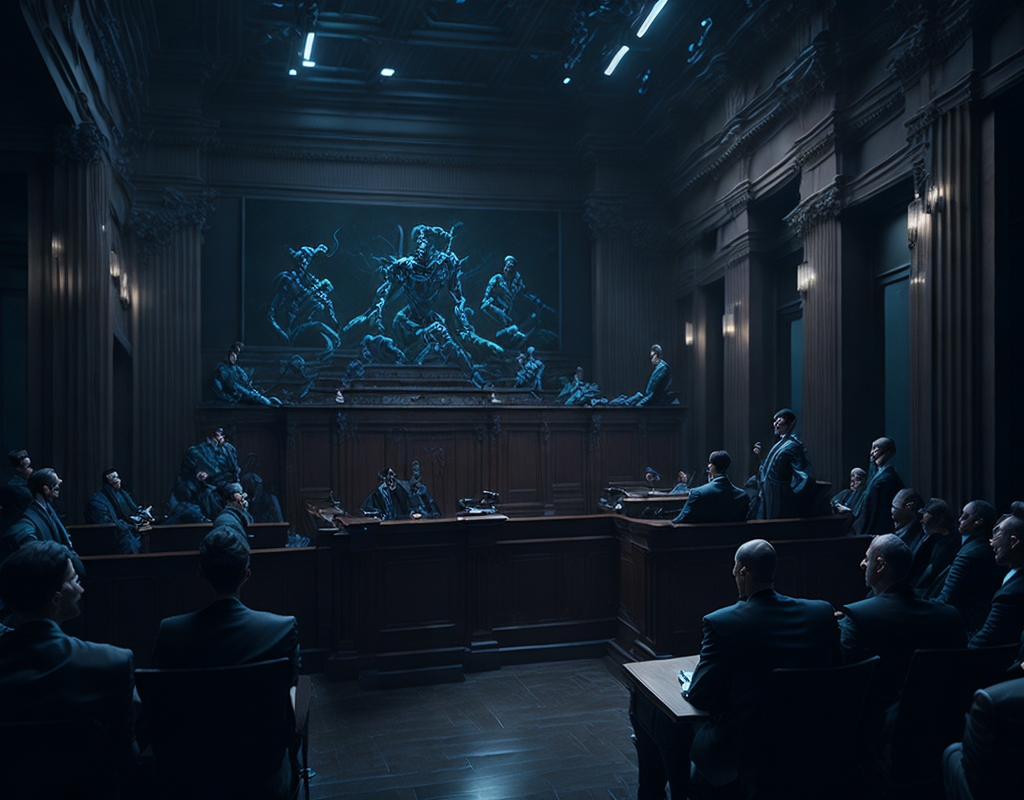
2024 AI Copyright Battles: Crucial Court Cases Ahead

As the year 2024 progresses, the artificial intelligence (AI) industry is on the verge of potentially transformative legal decisions regarding generative AI. The technology has come under scrutiny, with entities like Getty Images and various artists’ coalitions initiating legal battles with major tech companies. These groups claim that AI-generated creations violate copyright laws and endanger the livelihoods of human creators.
The main legal debate focuses on whether AI-created content should be acknowledged under copyright laws which traditionally do not recognize non-human creators. Opponents argue that AI creations should be treated as derivative works that need proper licensing from the original creators. Conversely, major tech entities argue their AI technologies generate new content independently of direct human input by learning from comprehensive datasets.
Currently, the spotlight is on two significant court cases. Getty Images has taken Stability AI to court alleging unauthorized use of copyrighted pictures in training their AI models. Meanwhile, Microsoft faces a lawsuit from the Artists Rights that challenges the use of AI in generating images for its design products.
The rulings in these cases could establish crucial legal benchmarks for the intersection of AI and creativity. Should the courts decide in favor of the plaintiffs, significant changes in the utilization of AI in creative processes could ensue, possibly necessitating licensing agreements for any copyrighted material used. Alternatively, if the decision favors the defendants, it might pave the way for wider acceptance and incorporation of AI-generated content across various sectors.
The outcomes of these legal disputes are poised to significantly influence the dynamics between technological advancements and copyright laws, affecting everyone from tech developers to artists worldwide. The community eagerly awaits these decisions, which will crucially dictate the trajectory of creative rights in the age of advanced technology.